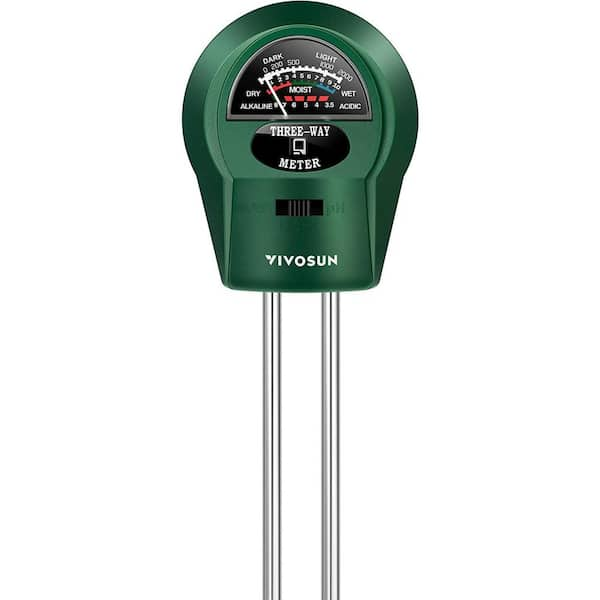Recognizing the Various Types of Moisture Meters and Their Applications
Recognizing the Various Types of Moisture Meters and Their Applications
Blog Article
The Ultimate Overview to Wetness Meters: A Comprehensive Introduction and How They Can Conserve You Cash
In the world of building maintenance, construction, and various sectors, the significance of accurately gauging wetness levels can not be overemphasized. Moisture meters function as vital tools in spotting and keeping track of moisture web content in products, aiding in preventing expensive damages and making certain the high quality of products. Understanding the subtleties of various kinds of wetness meters, their applications, and the possible cost-saving advantages they offer can be a game-changer for professionals and services alike. Discovering exactly how these gadgets can not just simplify procedures however likewise add to monetary savings is a journey worth starting.
Types of Wetness Meters
Different sorts of dampness meters are available for different applications in numerous industries. One typical kind is the pin-type wetness meter, which measures the electric resistance between two pins put into a material. This kind is appropriate for timber, drywall, and other structure materials. Pinless dampness meters, on the other hand, usage electromagnetic sensor plates to check a larger area without creating damage to the material's surface. Moisture Meter. These meters are ideal for swiftly assessing moisture degrees in huge locations such as floorings and wall surfaces.

In addition, there are additionally specialty moisture meters created for specific materials like grain, soil, or hay. These meters give exact wetness analyses customized to the one-of-a-kind buildings of the product being tested. Infrared moisture meters gauge the thermal residential properties of a product to identify its dampness web content non-invasively, making them helpful for applications where pin or pinless meters may not appropriate. Comprehending the different sorts of dampness meters readily available can help markets pick one of the most suitable device for their specific dampness measurement demands.

Advantages of Making Use Of Wetness Meters
Dampness meters offer important advantages in precisely keeping an eye on and examining dampness degrees in varied products and atmospheres. One of the key advantages of making use of moisture meters is the prevention of prospective damage triggered by excess moisture.
Additionally, using moisture meters can bring about boosted energy efficiency. By recognizing areas with high moisture levels, such as leakages or inadequate insulation, modifications can be made to enhance energy conservation and decrease utility costs. In agricultural settings, moisture meters play a vital function in enhancing plant yields by enabling farmers to keep track of soil wetness levels and make informed irrigation decisions. Overall, the advantages of making use of moisture meters span throughout various sectors, providing affordable remedies and promoting far better quality assurance practices.
How to Choose the Right Moisture Meter
Selecting the appropriate dampness meter entails considering key variables such as material compatibility, measurement range, and calibration precision. When selecting a wetness meter, it's vital to ensure that the meter appropriates for the certain material you will certainly be screening. Different products have varying electric homes that can influence moisture analyses, so selecting a meter created for your material is critical for precise outcomes. Additionally, take into consideration the dimension series of the wetness meter. Guarantee that the meter can find dampness degrees within the array needed for your applications. Calibration precision is one more important aspect to maintain in mind. Select a dampness meter with reputable calibration to make certain regular and accurate readings. Some meters may require routine calibration modifications, so recognizing the calibration process is crucial. By carefully reviewing these factors, you can select a dampness meter that meets your requirements check my source and supplies exact dampness dimensions for your jobs.
Appropriate Methods for Moisture Meter Use

Price Financial Savings Via Dampness Meter Applications
How can the calculated application of moisture meters lead to significant expense savings across numerous markets? In the agriculture industry, moisture meters aid in identifying the optimal time for collecting plants, protecting against excess or over-drying wetness that can affect the last item's quality.
In a similar way, in construction, dampness meters help protect against expensive problems by finding moisture degrees in building products, such as wood or concrete, which can bring about structural problems otherwise dealt with promptly. By determining trouble locations early, contractors can take rehabilitative steps to stay clear of extensive repair services or substitutes, ultimately conserving time and money.
Additionally, in the food investigate this site handling sector, wetness meters are crucial for keeping track of item quality and ensuring conformity with safety regulations. By precisely measuring moisture material in foodstuff, producers can prevent spoilage, preserve quality, and decrease waste, causing significant expense financial savings. Overall, the critical application of dampness meters is a useful investment that can lead to substantial price reductions and enhanced effectiveness across different industries.
Conclusion
In conclusion, dampness meters are useful tools for measuring and spotting moisture levels in various products. By making use of the ideal wetness meter and complying with appropriate techniques, customers can effectively protect against pricey problems caused by excess dampness.
Moisture meters offer as indispensable tools in spotting and monitoring moisture content in materials, aiding in preventing costly problems and making sure the high quality of products. Infrared dampness meters determine the thermal homes of a product to establish its moisture material non-invasively, making them useful for applications where pin or pinless meters may not be ideal.Moisture meters use important benefits in accurately keeping an eye on and analyzing moisture levels in varied materials and atmospheres. In farming settings, dampness meters play an essential duty in enhancing plant yields by making it possible for farmers to keep track of dirt wetness degrees and make informed irrigation choices.In verdict, dampness meters are valuable tools for detecting and measuring dampness levels in different products.
Report this page